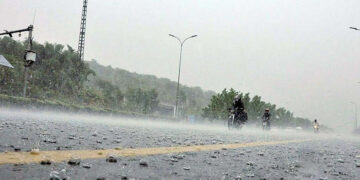![]() Follow Us on Google News
Follow Us on Google News
The security landscape in Khyber-Pakhtunkhwa and Balochistan has become increasingly precarious, marked by a surge in attacks occurring at frequent intervals that have left the public in a state of uncertainty. This unsettling scenario is intensifying as general elections loom on the horizon, exacerbated by the influx of external factors that continue to elude control both domestically and on the western frontiers.
The incident in Bajaur must be analyzed in conjunction with one of the deadliest attacks on the armed forces in Dera Ismail Khan’s Daraban area last month, where 23 soldiers lost their lives. Furthermore, sporadic casualties across Balochistan and the former tribal areas, particularly Waziristan, targeting a specific ethnic community, suggest a malevolent conspiracy. Clearly, the intention is to inflict harm on the nation and sow discord among provinces. The roots of both homegrown and foreign terrorism are intertwined, demanding a thorough introspection.
Pakistan’s unresolved concerns with Afghanistan play a crucial role in addressing terrorist activities. It is regrettable that Kabul has yet to provide a substantive response to Islamabad’s apprehensions about terrorists operating freely across the border. Beyond diplomatic exchanges, Pakistan has taken the strategic step of dispatching a political delegation to Kabul, led by JUI-F chief Maulana Fazalur Rehman, as a gesture of sincerity in fostering improved relations. The underlying message is clear – Pakistan is committed to reconciliation with Kabul, provided the latter takes decisive action against non-state actors.
The staggering statistics reveal the grim reality of over 1,500 violence-related fatalities from 789 terror attacks and counter-terror operations in the past year alone, marking a six-year high according to the think tank CRSS. Rebuilding the shaken confidence of the people and actively countering terror networks have become imperative tasks for the authorities. As the nation grapples with these challenges, a comprehensive and collaborative approach is needed to dismantle the intricate web of security threats in these crucial regions.






























